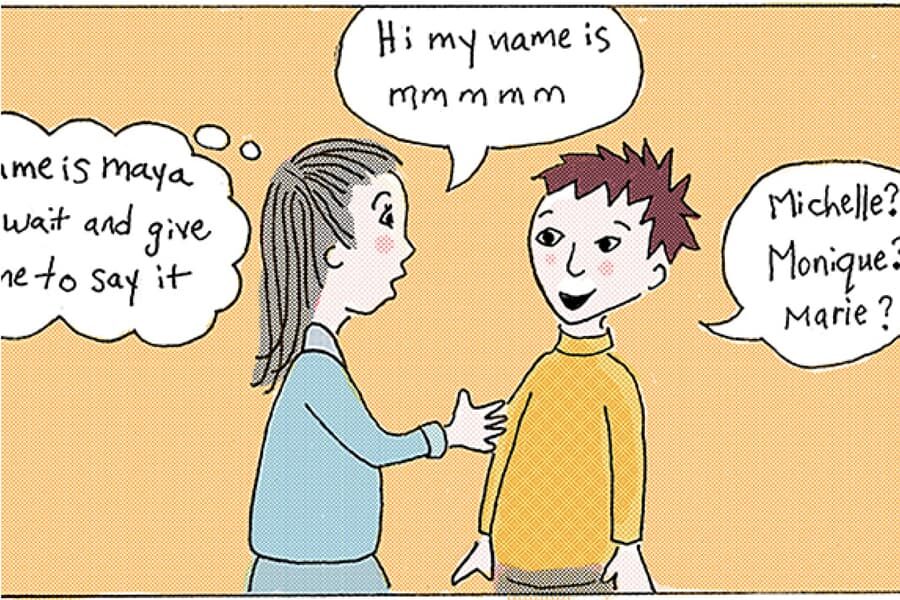A large part of my practice is working with preschool and school age children who stutter. When a young child comes to me, their parents are often looking for the stutter to be completely eliminated. Parents often have a lot of worry and anxiety for their child in the future. Will he lose his self confidence? Will people tease him? How will he be able to interview for a job if he stutters?
In the younger years, it is possible to “eliminate” a stutter. However, if a stutter persists until the school age years, it is unlikely that the stutter will ever be completely gone. This, of course, is hard for parents to hear. My job as a speech-language pathologist is to provide these older children with strategies that they can use when speaking to help make talking easier.
Since parents and older children often don’t want to be able to hear or feel the stutter, I have focused a lot of my therapy on the “smoothness” of their speech with a “lack of stuttering” being the ultimate goal. When working with an older child on using their “fluency strategies”, there have been moments where I have felt that I have focused too much on “not stuttering” instead of the accurate use of strategies and the ease of talking as a result of strategy use. Then, I watched the award winning documentary, “My Beautiful Stutter” and felt this even more.
This documentary follows an overnight camp that is specifically for children and teens ages 9 to 18 who stutter. In this camp, children get to be around other kids just like them. Some of them have never met another child that stuttered before going to the camp. They participate in many activities that help them to work through some of the negative self-image and self-talk that they have experienced as a result of their stutter. For example, the older campers are paired up with younger campers and they discuss their experiences as someone who stutters. The conversations, emotions and stories were truly remarkable and brought me to tears.
As I was watching this documentary, I was experiencing an internal struggle. This documentary and the camp it focuses on is sending the message to children that it is okay to stutter and there is nothing that needs to be “fixed” about them. I thought to myself, how can I be on board with this if I am a speech-language pathologist that is trying to “fix” stutters?
Then I realized, that is my issue. Trying to “fix” a stutter is not the right approach to working with an older child. As I was reflecting on the documentary, I started to realize that I must change my approach to therapy. I need to stop focusing on the “lack of stuttering” and empower children that want the help to use strategies to make talking easier for them, if and when they want to. I want them to know that it is okay to stutter if they don’t feel like using their strategies and it does not make them any less valuable or less intelligent. I need to help them with the self-confidence that they are so desperately seeking, counsel them through the tough times they are likely experiencing at school, and focus on the positives of their speech instead of focusing on whether they were “bumpy” or “smooth.”
This documentary opened my eyes to a completely different approach to therapy and has changed the way I work with my clients that stutter. I highly recommend this documentary and rate it a 5/5.
See below for a trailer and description of the film as well as information on how to screen this film:
My Beautiful Stutter follows five kids who stutter, ages 9 to 18, from all over the United States and all walks of life, who, after experiencing a lifetime of bullying and stigmatization, meet other children who stutter at an interactive arts-based program, The Stuttering Association for the Young, based in New York City. Their journey to SAY find some close to suicide, others withdrawn and fearful, exhausted and defeated from failed fluency training, societal pressures to not stutter or the decision to remain silent. Over the course of a year we witness first hand the incredible transformation that happens when these young people of wildly different backgrounds experience for the first time the revolutionary idea at the heart of SAY: that it’s okay to stutter.
Executive Producers: Paul Rudd, Mariska Hargitay, Peter Hermann, George Springer, Patrick James Lynch. Producers: Ryan Gielen, Michael Alden. Director: Ryan Gielen. Writer: Steven Sander.
